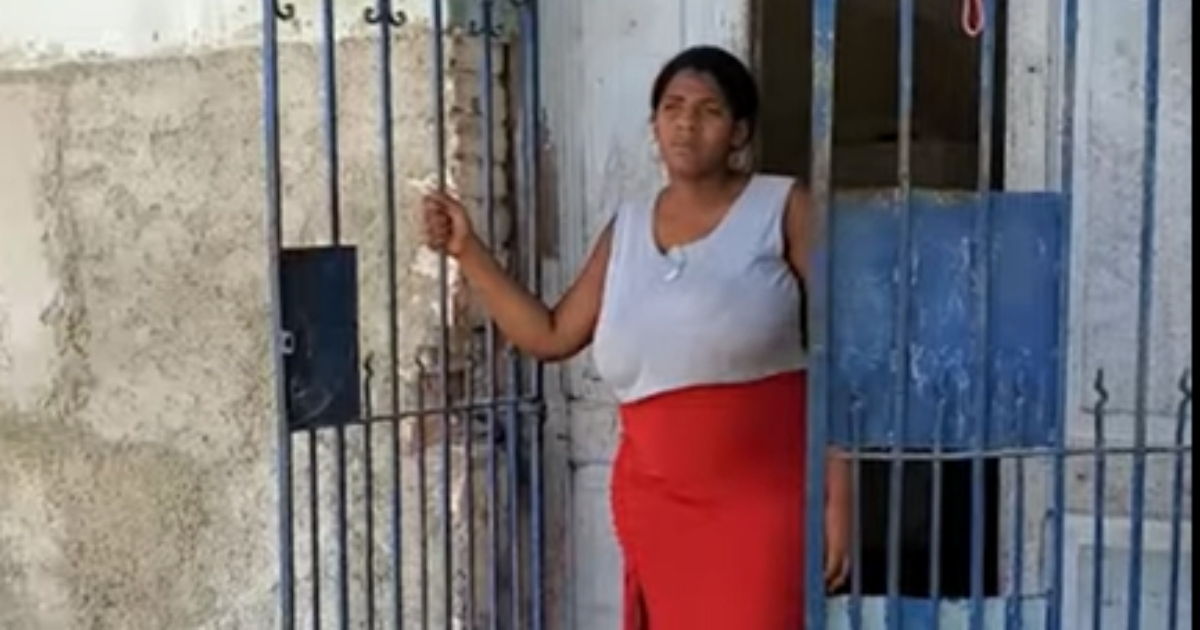
Yanaisa Esperanza Buides García, pregnant and with a small daughter, occupied an old disused state warehouse located in the Havana neighborhood of Santo Suárez, Diez de Octubre municipality.
The young mother and her daughter have been living in precarious conditions in a home that has been waiting for two years for the works to be completed, so she decided to occupy the abandoned premises in the hope of finding a better future for herself and her family.
Although Buides García, 23, is four months pregnant and has nowhere to live, she fears being evicted and asked all state and government institutions for help to have property.
“I am very afraid that they will take me away from here because I am a single mother, with a little girl and I am pregnant,” she said.
The director of the Municipal Company of Commerce and Gastronomy, owner of the building, informed him that he had to leave the premises and that he would call the police if he did not do so, he explained to the news agency.CubaNet.
The young mother said that in her unfinished home, there are no living conditions, and the authorities have not kept their promise to provide them with a place to reside while repairs to their house are completed.
Buides García also tried to seek help from different state institutions, such as the Directorate of Labor and Social Security and Housing, but has never received any assistance.
Yanaisa's situation is just one of many in Cuba, where lack of adequate housing and poverty are chronic problems. Despite the government's efforts to improve the situation, many Cubans still live in inadequate homes and struggle to survive amid the country's economic and social crisis.
Yanaisa's story highlights the need for action to address these issues in Cuba. Authorities must work to provide adequate housing and improve the country's economic situation, so that people like Yanaisa are not forced to occupy abandoned buildings in search of a better life for themselves and their families.
Hehousing problem in Cuba In recent times, it has forced Cuban families to occupy abandoned state premises, where they wish to continue their lives.
However, far from solving the problem, the government evicts these families and puts them on the streets, without having the right to their own roof.
A Cuban mother identified as Luquenia Consuegra was evicted at the beginning of April, along with his two children, from a state premises that he had occupied in the Sagua de Tánamo municipality, in the province of Holguín. The woman decided to enter that place after her home collapsed and she had not received help to rebuild it.
The Cuban government published Opinion 471 of 2023, which establishes new legal guidelines for the eviction of people who illegally occupy homes or state property. This document indicates how to proceed in cases of usurpation of article 421 of the Penal Code and contemplates the possibility of considering personal violence, gender or family violence, and discrimination as an aggravating factor in the crime. The measure occurs in the midst of a housing crisis in Cuba and an increase in the phenomenon of illegal occupation of state properties.
What do you think?
SEE COMMENTS (1)Filed in: